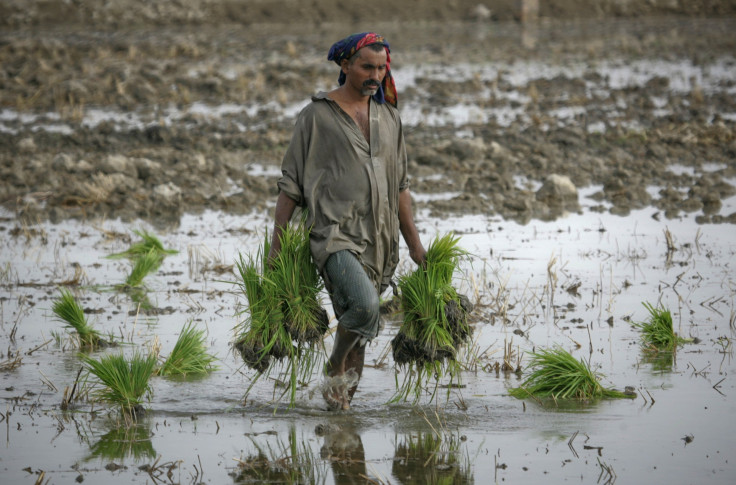Deadly Ancient Tribal Feuds Still Plague Pakistan In 21st Century

As Malala Yousafzai, the young Pakistani girl who became a global icon for women’s rights after she was shot by a Taliban gunman, is feted at the United Nations in New York, life for her countrymen 7,000 miles away remains extremely difficult. Of the many problems facing Pakistan, one that may not receive much media attention in the West has to do with ancient blood feuds that pit one tribe against another, often leading to extreme violence.
In the district of Larkana, in northern Sindh province -- perhaps best known as the home of the Bhutto dynasty -- such conflicts between tribes have intensified to the point where dozens of people have been killed and 40 schools have been shut down just in the past year. According to a report in Dawn, an English-language Pakistani daily newspaper, some 11 tribal disputes involving at least 22 different tribes have led to at least 147 deaths and 71 people injured so far in 2013.
Local police officials believe the violence is facilitated by illegal guns smuggled across the Sindh-Balochistan border. “We have established a border force in Jacobabad [Sindh city at border] to plug the supply of illegal weapons,” said a local senior police officer. “But there is also a need to strengthen that border force.” Police suspect that Larkana is particularly prone to tribal violence for two principal reasons: Its proximity to the wild and lawless Baluchistan province has brought people of different and traditionally hostile ethnic groups (Baloch and Sindhi) closer together; and, perhaps more importantly, wealthy landlords in the area encourage tribes to war against each other as a means of maintaining their power and control by keeping residents in a state of constant disunity and enmity.
Frequently, clashes between rival tribes and clans in Pakistan are resolved through the custom of “vani,” in which a young girl from one tribe is forced to marry a man (usually a much older man) from another tribe in order to mediate some grievance between the parties. For example, if a young man from Tribe A murders another man from Tribe B, the family from “B” could demand that a young girl from “A” be handed over in marriage to one of the murder victim’s relatives. Sometimes, the girl is spared this marriage if her clan can provide a cash payment. In other words, the young girl is a completely innocent victim of a situation caused by the misconduct of men.
Although illegal and considered a serious crime in the country, vani is still practiced in many rural regions, particularly in the Punjab and Sindh. “Vani” itself is a Pashto word that means “blood.”
A Pakistani blogger named Hafsa Khawaja condemned the custom. “Pakistan has not yet been able to cease the brutal traditions of the past that define women as nothing more than articles of trade and possession,” she wrote. “In countless rural villages, centuries-old customs like… Vani are [used] to resolve conflicts and feuds generated through murders. These decisions are often made by a jirga or panchayat, who are a council of elders from the community who convene an informal court to decide methods for resolving disputes.”
She further noted that forcing young girls into marriage to mollify her tribe’s enemies is not only against the Universal Declaration of Human Rights “but [also] in clear conflict with the teachings of Islam. Islam categorically forbids all marriages made under any kind of compulsion.” An elderly man in the town of Mianwali in Punjab named Fareedullah Khan, who saw one of his granddaughters handed over to a rival clan to compensate for a murder committed by her uncle, lamented how the girl’s life was completely ruined through no fault of her own. "It is a terrible thing. The girls handed over to rival families are innocent of crime, and they are always treated like enemies within the homes of their spouses," Fareedullah told IRIN news agency.
In 2006, activist Asma Jahangir, head of the Human Rights Commission of Pakistan, declared that "such customs thrive in oppressive environments." The full extent of vani in Pakistan is unknown, although local media frequently report on the custom. Last month the Express Tribune told the story of a 10-year-old girl who was forced to marry a man five times her age as a “penalty” for the girl’s father abducting a woman and making her his second wife.
© Copyright IBTimes 2024. All rights reserved.





















